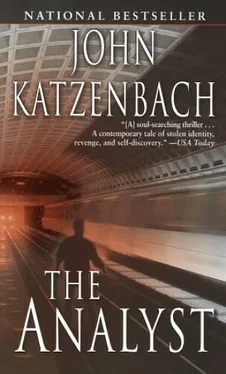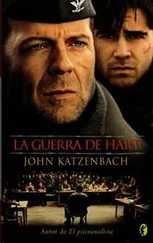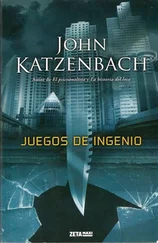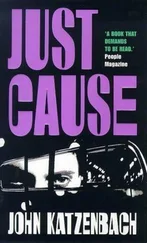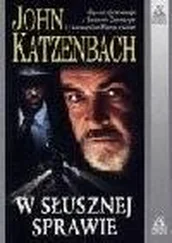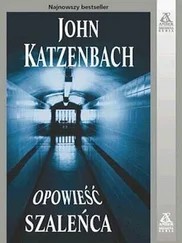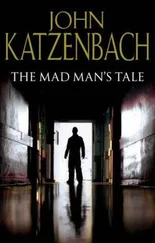This seemed like a reasonable arrangement. The detective nodded. Ricky took some inward pleasure in the observation that her mildly mocking and sarcastic tone had changed, shortly after he had raised the possibility that she had screwed up. Even if she thought this possibility remote, in a world where promotions and raises were so carefully connected to successful completions of investigations, the idea that she had overlooked a murder and defined it as a suicide was the sort of mistake that any bureaucrat was especially scared of. “… I’ll expect your call at your earliest convenience,” he said.
Then Ricky rose, feeling as if he’d just struck a blow for himself. Not a victorious sensation, but, at least, one that made him feel a little less alone in the world.
Ricky took a cab to Lincoln Center, to the Metropolitan Opera House, which was empty except for a few tourists and some security guards. There was a bank of pay telephones outside the men’s and women’s rooms that he was familiar with. The advantage of the phones was that from that location he could make a phone call, while at the same time keep an eye on anyone who might try to follow him into the opera house. He doubted that anyone would be able to get close enough to determine who he was calling.
The number he had for Dr. Lewis had been changed, as he’d expected. But he was connected to a second number with a different area code. He used most of the spare quarters he had to connect to that number. As the phone rang, he thought Dr. Lewis was now probably well into his eighties, and he was uncertain whether he would be of any assistance. But Ricky knew that this was the only way he could get some perspective on his situation, and with a desperate quality to his every step, it was one he should take.
The receiver rang at least eight times before being answered.
“Yes?”
“Doctor Lewis, please.”
“This is Doctor Lewis.”
It was a voice Ricky had not heard in twenty years, yet filled him with a rush of emotion that surprised him. It was as if a torrent of hates, fears, loves, and frustrations suddenly was loosed within him, and he forced himself, struggling, to maintain some composure.
“Doctor Lewis, this is Doctor Frederick Starks…”
Both men were silent for a moment, as if the mere meeting on the telephone after so many years was overwhelming.
Dr. Lewis spoke first. “Well, I’ll be darned. It is nice to hear from you, Ricky, even after so many years. I am quite taken aback.”
“I’m sorry, doctor, to be so abrupt. But I didn’t know where else to turn.”
Again there was a brief silence.
“You are troubled, Ricky?”
“Yes.”
“And the tools of self-analysis are inadequate?”
“Yes. I was hoping you might lend me some time to talk.”
“I do not really see patients anymore,” Lewis said. “Retirement. Age. Infirmity. Getting older, which is terrible. All sorts of things simply sliding away.”
“Will you see me?”
The old man paused. “Your voice seems quite urgent. This is important? You are deeply troubled?”
“I am in great danger, and I have little time.”
“Well, well, well.” Ricky could sense a smile on the old analyst’s face. “That sounds genuinely intriguing. You think I can help you?”
“I don’t know. But you might be able to.”
The old analyst digested this momentarily, before replying, “Spoken like someone in our calling. You will have to come out here, I’m afraid. No more midtown office.”
“Where’s here?” Ricky asked.
“Rhinebeck,” Dr. Lewis said, adding an address on River Road. “A wonderful place to be retired, except damn cold and icy in the winter. But lovely now. You can get a train from Pennsylvania Station.”
“If I get there this afternoon…”
“I will see you whenever you arrive. That is one of the sole advantages to retirement. A distinct lack of pressing appointments. Take a cab from the station and I will be expecting you around dinnertime.”
He scrunched into a corner seat as far to the rear of the train as he could find and spent most of the afternoon staring out the window. The train traveled directly north following the course of the Hudson, sometimes so close to the river’s edge that the water was only yards away. Ricky found himself staring out across the expanse, fascinated by the different shades of blue-green that the river engaged, a seemingly deep near-black close to the banks, stretching into a lighter, vibrant blue in the deep center. Sailboats carved through the water, tossing white sheets of spray from their bows, and an occasional ungainly, huge container ship wallowed through the deepest channel. In the distance, the Palisades rose harshly, gray-brown columns of rock, topped with stands of dark green trees. There were mansions dotting wide lawns, houses so huge that the wealth enclosed seemed impossible to envision. At West Point he caught a glimpse of the military academy high on a hill, overlooking the river; he thought the stolid buildings as gray and taut as the uniformed lines of cadets. The river was wide and glassy, and he found it easy to imagine the explorer who gave the water its name five hundred years earlier. He watched the water surface for a bit, unsure in his own mind which way the current flowed, whether it dropped down back toward the city and the ocean beyond, or whether it climbed north, pushed by the tides and the spin of the earth. This troubled him slightly, not knowing, being unable to tell which direction the water traveled from staring at its surface.
Only a small group of people got off the train in Rhinebeck and Ricky lingered on the platform inspecting each, still worried that despite his efforts, someone had managed to follow him. There were a couple of young people, college-age kids in jeans or shorts, laughing among themselves; a middle-aged mother towing three children in a pack, trying to show patience with one wandering blond-headed boy; a harried pair of businessmen already working their cell phones as they headed up to the station. None of the folks getting off the train even glanced in Ricky’s direction, except for the little boy, who paused and made a face in his direction before racing up the long flight of stairs leading away from the tracks. Ricky waited until the train started to edge out, making large metallic grunting sounds as it gathered momentum. Convinced there was no one else who had departed, Ricky ascended into the station. It was an old, brick building, with a tiled floor that echoed his footsteps as he paced through, filled with cool air that defied the late afternoon heat. A single sign with a red arrow above a wide double door read: taxis. He exited the station and saw only a single bedraggled white sedan, bearing a medallion on the side and an unlit emblem on its roof and a large dent in the front quarter panel. The driver seemed about ready to leave, but spotted Ricky, and sharply pulled back to the curb.
“You need a ride, fella?” the driver asked.
“Yes, please,” Ricky answered.
“Well, I’m the only guy left. I was just about to take off when I sees you coming through the door. Jump in.”
Ricky did as he was told, and gave the man Dr. Lewis’s address.
“Ah, prime real estate that,” the driver said, accelerating, the tires complaining slightly as they pulled out of the station.
The road to the old analyst’s house was a meandering, narrow two-lane drive through the countryside. Stately oaks created a canopy of shade above the macadam, so that the weak summer evening light seemed to slowly flow to the earth like flour through a sieve, sifting shadows right and left. The countryside rolled with gentle hills, like swells on a modest ocean. He could see clusters of horses standing in some fields, and in the distance large, imposing mansions. The homes closer to the roadway were antique, often clapboard, with small square date-signs prominently displayed, so that the passerby would know that this house was constructed in 1788, or this one in 1802. He saw flower gardens streaked with color, and more than one T-shirted homeowner astride a small tractor lawn mower, aggressively clipping some immaculate swath of green grass. It was an area that spoke of escape, he thought. He guessed that most of the residents thought their primary life was in the caverns of Manhattan, working with money, power, or prestige, and quite frequently with all of them. These were weekend homes and summer getaways, fantastically expensive, but with genuine cricket sounds at night.
Читать дальше
